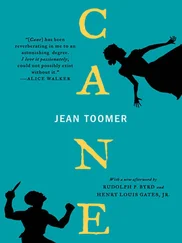The tree splays out its branches, letting the wind blow through. Slowly your skin begins to remember.
I met Tian Yi in September 1988. Having probably left the campus at the same time as each other that morning, we happened to board the same bus. It was packed. The passengers were, as usual, avoiding all eye contact by staring at the ceiling or the floor.
At the second stop, a few passengers got off. A space opened in front of me and I became aware of her presence.
Furtively, I squeezed myself over to where she was standing, staring blankly, as if lost in reverie.
Warm bodies pressed against me. Usually, when passengers are so cramped together that they can smell each other’s sweat, hair and breath, they instinctively turn away from one another. But I turned towards her and, through a gap between two heads, stared at her profile.
She was looking out of the window, so I was free to gaze at her as long as I wished. But she sensed she was being watched. She turned her head to seek out her observer’s gaze, and her face was revealed to me. She glanced at me for a second, as though by accident. She was standing so close that, before she turned her head away again, I could see the flakes of chapped skin flattened under her lipstick.
When the passengers standing between us stepped off the bus, I moved towards an empty seat beside her. I pretended to hesitate about whether to sit down. As I’d hoped, she glanced at the seat.
‘Please take it,’ I said, lowering my eyes.
‘No thanks,’ she said, turning away.
‘Why not?’
She stared at my university badge and said, ‘So you’re a biology student?’
As I started babbling about how silly it was not to take an empty seat, more passengers squeezed onto the bus and suddenly I was pressed right against her. A man put his leg between us and wriggled into the empty seat.
‘All right then,’ she said, ‘I’ll tell you the truth. I didn’t want to crease my skirt. Are you happy now?’ Then she sank once more into a daze.
The metal badge pinned to her shirt juddered as the bus trundled along. All the other passengers seemed to merge into one. Whether they were tall, short, fat or thin, they all shook in unison, back and forth, from side to side, mirroring each other’s movements as they tried to maintain their balance. As we shook, I watched her delicately shaped ear moving towards me, then away from me. It looked like a foetus embedded in a womb of black hair. The soft outer rim and inner folds curved elegantly around the dark hole in the centre.
After I had stared into the hole for some time, it began to resemble an open mouth.
She’d tied her hair back with an elastic band to reveal the nape of her neck. The loose strands that had escaped the band fluttered in the breeze. A-Mei often wore her hair like that.
She was standing perfectly still now. My heart was beating fast.
The bus had stopped outside a department store, and many passengers got off. I took a deep breath of the air around her and watched the alighted passengers disperse into the bright sunlight.
When the bus drove off again, I gripped the handrail, stepped back and looked at her more closely. I knew that her glazed expression was deliberate. It served as a camouflage, allowing her to disappear into her surroundings.
While she stared blankly out of the window, I focused on her nose, which seemed more beautiful the longer I stared at it. I observed the graceful downward slope, the curved tip, the perfect arch of the nostril. I noticed the blackheads on the wing of the nose, and the crack in her foundation at the bridge which deepened whenever her eyebrows moved. Sometimes her nostrils flared a little, which was perhaps a reflex reaction to a momentary sensation of being watched. When women sense an unwanted male gaze fall on them, their faces take on a more masculine appearance.
Before we reached the next stop, the bus jolted to a halt. I clutched the handle above me to stop myself from falling. Now that the bus was a little emptier, I could see the wooden slats of the floor, as well as her feet and her white strappy sandals. Her legs were bare, and she was wearing a white cotton skirt just like the one A-Mei used to have.
I looked away and stared at the hot, dusty street outside the window. From the corner of my eye, I felt her gaze moving towards me. It was intense, luminous, alive. I continued to stare out at the shifting buildings and trees, and the colourful crowds wavering in the dappled sunlight.
I silently counted how many stops were left: one, two, three, four… Reflected on the window I saw the two black buttons of her white shirt. When the bus shook, her breasts moved but her stomach remained still. Her hand became translucent in the sunlight. It was clutching the handrail, right next to mine.
Very soon this unknown girl would brush past me, and I’d never see her again. In my sadness and frustration, I could tell that for the rest of my life her silent image would move through my mind, like the memories of A-Mei’s toes and transparent eyes.
It was a hot day. I watched the humid heat spill through the hazy streets.
A fidgety child suddenly stuck his hand-held electric fan out of the window and switched it on. The green-and-red paper blades shimmered irritatingly as they whizzed in the sunlight. ‘Do you want to lose your hand?’ shouted the father. The boy turned and knocked into her. ‘I’m sorry,’ the father said. ‘My son’s got no manners.’
‘Don’t worry,’ she said.
I looked away, trying to erase the image of her.
We both got off the bus at Xidan market. As she stepped onto the pavement, she glanced back at me. I looked up and met her gaze.
She said she was going to buy some notebooks, and that three of her psychology classmates were celebrating their birthdays on the 20th. The party was going to start at eight. ‘If you want, you can come along,’ she said. Then she turned round noiselessly and walked away.
I watched her hips, wrapped in the cotton skirt, swing from side to side then disappear through a dark door.
I made up my mind to go to that party. I had to see her again.
You listen to your leaping thoughts, your rumbling organs, those shining notes of music.
When I opened the door of the classroom in the Psychology block, I was hit by loud music blasting from a cassette player. It was too dark to see any of the faces clearly. All I could make out were patches of pale clothes and gold plastic flitting through the candlelight. Students in the middle of the room were swaying to the music. A few girls holding candles were chatting in the corners. Their illuminated faces looked beautiful. Two girls in long dresses danced with their arms wrapped tightly around each other.
I glanced around the room. I could sense that someone’s eyes had focused on me, but I hadn’t spotted them yet. I wondered if I’d ever find her. In the dark, everyone looked the same. The dissolving of differences made people feel safe, and gave them the courage to move closer to one another.
My eyes slowly grew accustomed to the dark. Beginning to feel a little awkward, I tried to boost my morale, telling myself, ‘She’ll know that I’ll be looking for her, she invited me, she wanted me to come,’ while all the time trying to remember what she looked like.
The students in the middle of the room were now hopping and whirling to a Taiwanese pop song. Their shaking limbs, mannered gestures and youthful energy seemed both exciting and tedious. There was a smell of dust in the air.
A girl glanced up. Our eyes met for a second and I knew at once that it was her. She was twirling around, always slightly behind the beat, her fingers splayed out in front of her or resting on her hips. Her hair bounced around her shoulders. There was perspiration on her forehead.
Читать дальше












